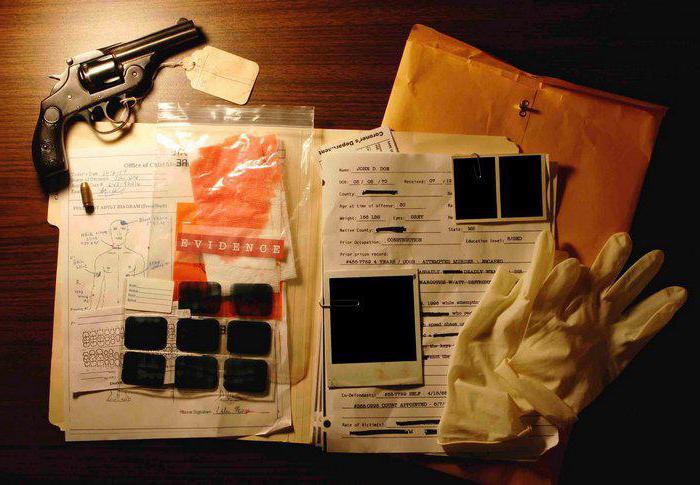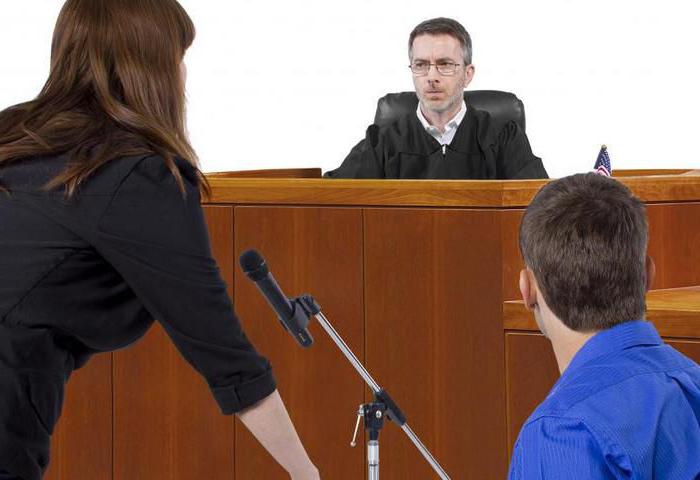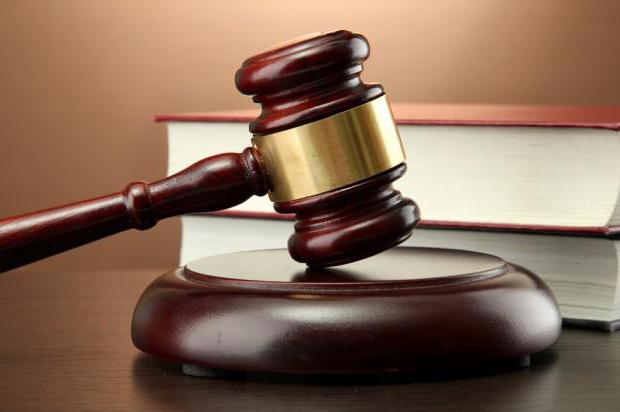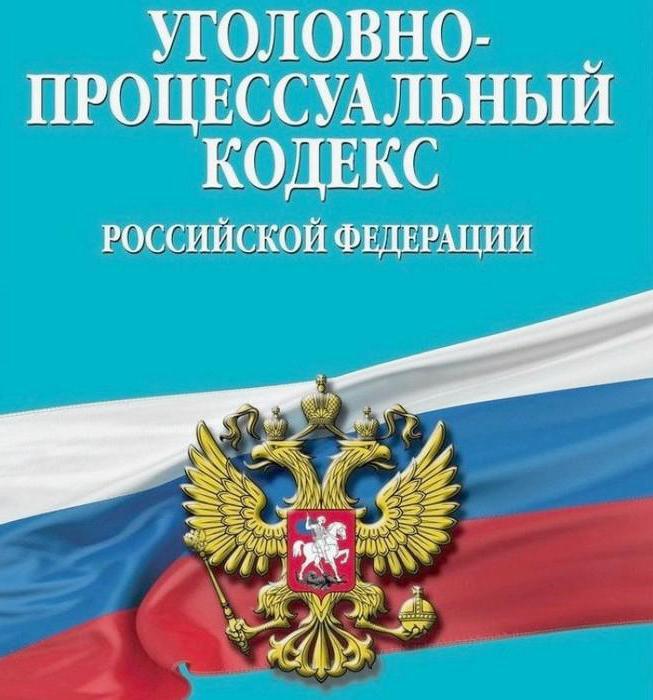One of the prerequisites for bringing the subject to responsibility is the availability of sufficient evidence of his involvement in the committed act. The burden of proof lies with the prosecution in accordance with procedural rules. A citizen who is suspected / charged with a crime is also entitled to present evidence of innocence. 
We further consider the concept of evidence, fixed in Art. 74 Code of Criminal Procedure, with comments from 2016 g.
Definition
It is revealed in h. 1 Article 74 Code of Criminal Procedure. As established in the norm, evidence on criminal proceedings is any information on the basis of which the inquirer, court, prosecutor, investigator establish the absence / presence of facts to be proved, other circumstances that are significant for the process.
Composition
Evidence according h. 2 tbsp. 74 Code of Criminal Procedureare recognized:
- Testimony of accused / suspects, victims, witnesses.
- Indications, conclusions of a specialist / expert.
- Evidence.
- Protocols of judicial, investigative actions.
- Other documents.
Commentary on Art. 74 Code of Criminal Procedure
In the process of confirming certain facts included in the subject of proof, any data may be used from which the existence of these facts follows.
In fact, evidence is the only means by which authorized persons establish the circumstances to be proved. 
Considering Art. 74 Code of Criminal Procedure with comments lawyers, it should be noted that experts identify two key provisions of the norm. The first concerns directly the information itself used in the proof. The second refers to the sources of their receipt. They are persons involved in the production in one or another status, or documents of a procedural nature and fixing certain actions.
The importance of verification
To the information specified in Art. 74 Code of Criminal Procedure, have really become evidence, they need to be investigated and verified. Information should be assessed by the court, other participants in the proceedings. This rule is aimed at implementing the principle of comprehensive judicial proceedings.
In addition, the information must have a specific procedural form.
Information Requirements
They are enshrined in several articles of the Code. To make evidence evidence Art. 74 Code of Criminal Procedure, they must be:
- Relevant.
- Valid.
- Authentic.
- Enough to resolve the case.
The requirements for the information used in the proof are established by Art. 75, 88 Code of Criminal Procedure.
Sources of Information
As mentioned above, persons who are carriers of information have a certain status. Their procedural position is explicitly indicated in the second part. Art. 74 Code of Criminal Procedure.
This or that participant in the process receives status as a result of certain actions by officials conducting the production. Moreover, one and the same subject may occupy a different procedural position. For example, in 2 parts Art. 74 Code of Criminal Procedure the evidence of the defendant is not indicated as evidence. Meanwhile, one and the same citizen can be accused / suspect, defendant, convicted, acquitted.
A person receives this or that status at different stages of production. For example, in the framework of the pre-trial process, a citizen becomes an accused after the relevant decision is made. The basic duties and rights of such a person are defined in article 47 of the Code. It is worth saying that in paragraph 1 of part 1 of Art.276 indirectly confirms the fact that, regardless of the judicial / pre-trial part of the proceedings, the term “accused” is a generic term in criminal procedural relations, including those arising from the taking of evidence.
That is why in 2 parts Art. 74 Code of Criminal Procedure the type of evidence refers to the testimony of the accused person, which, in turn, can be both the defendant and the convicted person depending on the stage of the proceedings.
Nuances
It should be said that the interrogation of an accomplice after the conviction against him, according to which he acquired the status of a convict, is necessary not according to the rules provided for obtaining evidence from a witness, but in the manner established for the interrogation of the accused. 
If an acquittal decision is made in respect of a person, it becomes a witness. Testimony in this situation is carried out in the appropriate order. Moreover, the witness, on the basis of the provisions of Article 56 of the Code of Criminal Procedure, may not testify against himself or his relatives. This rule also applies in the event of termination of the proceedings on rehabilitation grounds.
Accuracy of information
Information obtained by rumors, which are conjectures, cannot be regarded as evidence, even if they were provided by witnesses, experts, are set out in documents not attached to the case.
Information collected in the course of operational-search actions, before verification and confirmation, can have only orienting value, indicate any version of what happened or the location of other evidence. The reliability of the information should be documented. 
Information Validity
Documents containing an overview of data obtained in the process of operational-search actions, without indicating their source, are considered inadmissible. Moreover, of course, they can become the basis for a decision on the implementation of other procedural measures.
In any case, authorized persons, including counsel, are required to receive information only by legal means.
Relevance of evidence
All items discovered (received) during the investigation reflect the crime event. Accordingly, there should be a direct connection between the incident and these objects.
All information that is accepted as evidence just indicates the existence of a connection between them and the circumstances to be confirmed.
Relativity depends on various factors. Of course, it is impossible to establish in advance a list of all the circumstances that make up the subject of proof. These facts are determined during the investigation during the development and verification of versions of the incident. 
Difficulty in practice
It is relatively easy to determine the relevance of information if it is aimed at refuting / confirming the facts directly established in the hypotheses of norms and precisely oriented in space and time.
Difficulties arise with indirect evidence. The fact is that far from all cases the connection between the secondary facts established by them and the main circumstances is obvious. In such situations, they speak of a kind of conditional relevance. In the course of the investigation, it either refutes or becomes unconditional.
Of particular relevance is the fact that when proving facts, the investigator, prosecutor, court or inquiry officer must obtain, verify, give a legal assessment of the evidence that is sufficient and necessary to make an informed decision. 
Civil plaintiff
This subject provides information about the requirements of the claim against the defendant or the entity responsible for his actions. The civil plaintiff is considered a party to the prosecution. Accordingly, he must independently prove the validity of his claims.
In addition, the testimony of this subject can be used as evidence of other circumstances relevant to the proceedings.
It must be borne in mind that giving the plaintiff testimony is possible after the initiation of proceedings. From that moment on, a person can obtain this status by sending claims for compensation for damage caused by the infringement. Accordingly, the testimony of the civil plaintiff before the opening of the case is not provided. 
The representative of this person, in the presence of a supporting document, enjoys all his procedural rights and bears the corresponding responsibilities. This means that the representative, like the plaintiff, can testify, which subsequently (after verification) can become evidence in the case.